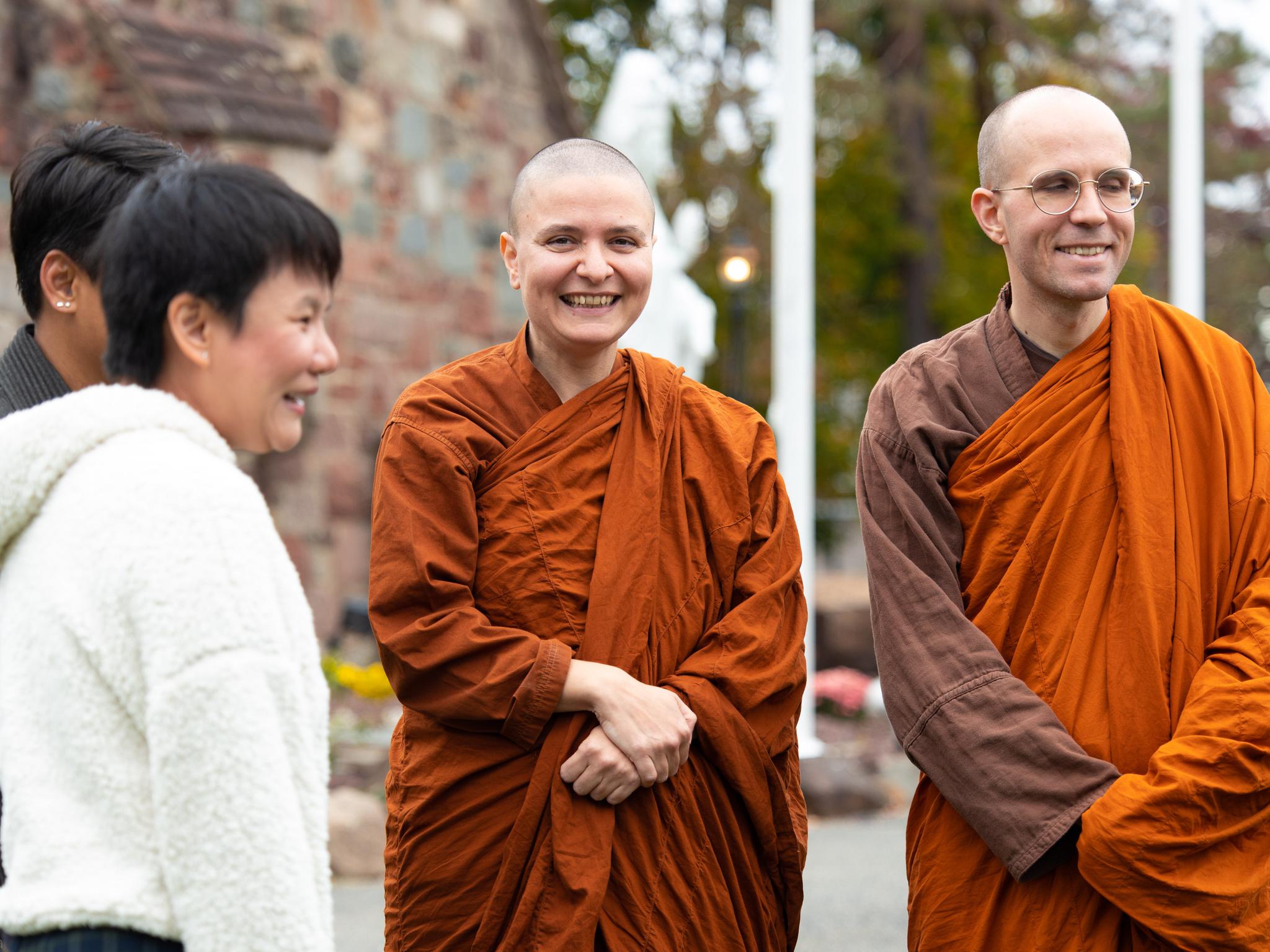UNLIMITED
These Buddhist monks want their faith to be known for more than just mindfulness

Mindfulness is mainstream. There are mindfulness retreats that will set you back thousands of dollars. Entire sections of libraries and bookstores are devoted to the subject.
My kids learn mindfulness and meditation techniques in their public elementary school. Before my weekly yoga class starts, the teacher says a bunch of stuff about mindfulness, and setting intentions for our downward dogs and plank poses.
On the whole, I think mindfulness showing up in our culture in new ways is a good thing.
However, I do think there's something off-putting about the "mindfulness industrial complex" - the expensive getaways and self-proclaimed gurus, who make promises about personal transformation they can't necessarily keep.
And I've been looking for something different. I wanted to understand the theology that birthed the modern mindfulness movement. I wanted to understand how, by training your mind, you could actually create some kind of divine connection to yourself, to other people in your life, or even to a higher power.
In all this spiritual seeking I'm doing these days, it was time to go deep on Buddhism.
My mom was a lifelong Presbyterian who served as a church deacon, and hung artisan-made crosses around her house. But I also have clear memories of her sitting on her black meditation pillow in front of the window in her bedroom, eyes shut, breathing deep and audibly.
She had books by the Dalai Lama and Thich Nhat Hanh on her bedside table. Like a lot of Americans, she didn't see Buddhism and Christianity as contrary to one another — they could be complements.
I wanted to understand what that could look like. My mom died 14 years ago and I can't ask her, so I have to figure it out for myself. That means doing my own research and having my own experience with
You’re reading a preview, subscribe to read more.
Start your free 30 days





